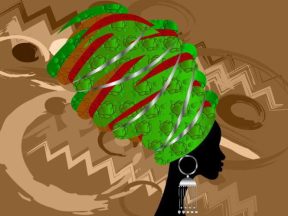Neo Pan-Africanism As An Alternative.
Africa is experiencing an ideological crisis that is expressed by the current adhesion of African governments to either neoliberalism or monetarism that destroy human solidarity, erode the welfare state and increase human suffering.
After the failure of imported ideologies, the future of Africa lies in the adoption of a new unifying ideology of development, Neo Pan-Africanism, which has to do with an approach of supranational and maximalist African unity, in the form of a federation or confederation, a sort of United States of Africa, in order to face the problems of development and security in the continent and the challenges of globalization.
Pan-Africanism, as it exists today, despite its attractive force, remains a nebulous, undefined concept, which each one interprets in their own way. Despite the unanimity over the need for African unity, there are discrepancies in the methods and means for its implementation: some think unity should be reached by proceeding from the foundations (regional unity, national unity, and continental unity). Others, instead, are convinced that the pressing problems faced by Africa require an immediate continental unity in the form of a federation or confederation.
It is up to the enlightened African intellectuals committed to the social causes of their people to take steps towards Neo Pan-Africanism, as an ideology of development and supranational unity of the continent, or simply ‘ideology of the defence of the interests of Africa’. In other words, the policies and the theories of development conceived and elaborated in the ‘north’ should be changed, through the creation of an African think-tank, composed of the political, intellectual and economic elite and the members of civil society who would be in charge of finding ‘African solutions to African problems’, and the promotion of knowledge and endogenous practices.
African unity, as Moussa Konaté rightly points out, does not necessarily have to be inspired by the EU model, but by the new African personality that would be formed by political and social reforms, and by the strengthening of South-South cooperation, in particular with the emerging countries of Asia and Latin America. Basically, a different model of political and economic integration should be adopted, a model more suitable for African realities, and at the same time, different from the current ‘open regionalism’, the goal being to switch from the current African States to the ‘African State’.
The annihilation of the idea of a possible alternative, not only to globalization, but simply to capitalism itself is one of the serious problems generated by globalization. Now it is necessary to reconstruct what the Berlin Conference and the colonization destroyed through the politics of ‘balkanization’, and to promote the political, economic and social development of the African people. A new model must be implemented that is conceived not for the African people, but with them. A self-thought, self-defined and self-financed model which can be an antidote to the State-Nation model that is in crisis.
These objectives are not stated in the OAU charter, and neither in that of the African Union, nor that of NEPAD (the technical body of the African Union). All these organizations have turned into vectors of globalized neoliberalism. The 2063 Agenda of the African Union Commission (which falls on the centennial anniversary of the birth of the OAU), seems to walk, even if feebly, towards the supranational unity of the continent, by giving priority to regional integration and the creation of the United States of Africa.
Mbuyi Kabunda



